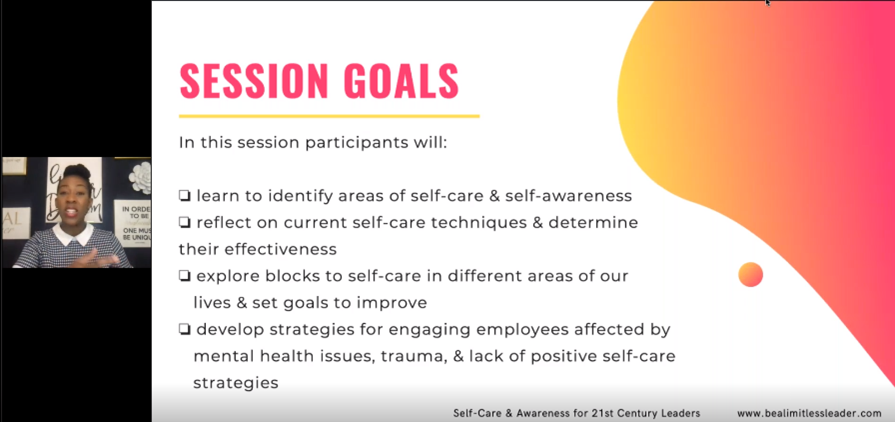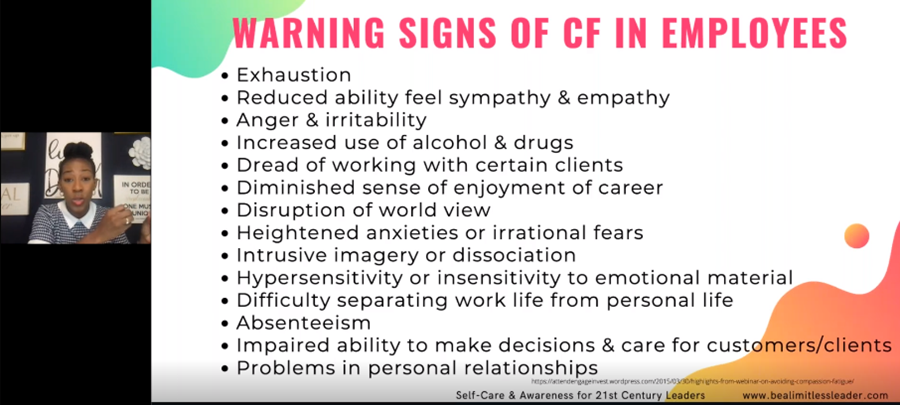Blog: Self-care individual marketing campaign
Self-care is your individual mobile marketing campaign

More than ever before, the demands on leaders in the public sector are physically, mentally, emotionally, and professionally demanding. To perform at your optimal level, you must develop specific strategies and safeguards to protect your leadership capacities and remain sensitive and responsive to the needs of your employees. These strategies fall under the umbrella term of self-care. They are actions that help you be as outstanding and successful as possible, and they look different for everyone.
Self-care has become a marketable buzzword. Buy into this strategy, this app, this idea, and you’ll be practicing self-care. But what is self-care really? And how do you know if you are doing it correctly?
Are you doing self-care wrong?
Not all self-care is beneficial. You know you are doing it wrong if you:
- Buy into someone else’s definition of self-care
- Compare your self-care
- Think self-care means eating, drinking, and doing whatever you want
- Don’t match your inner dialogue to your outer care
To ensure you are doing self-care correctly, you need to factor in your mental, physical, and emotional health. It’s not enough to look good on the outside if your inner dialogue is not demonstrating self-care. A spa day can be a great form of self-care; it can alleviate physical tensions and help you relax. But, if your inner narrative is derogatory, you aren’t fully practicing self-care and might be better served with meditation, therapy, establishing boundaries, avoiding toxic people, or practicing gratitude.

Practice self-care to avoid compassion fatigue
We have not been directly exposed to the trauma scene, but we hear the story told with such intensity, or we hear similar stories so often, or we have the gift and curse of extreme empathy, and we suffer. We feel the feelings of our clients. We experience their fears. We dream their dreams. Eventually, we lose a certain spark of optimism, humor, and hope. We tire. We aren’t sick, but we aren’t ourselves.
– C. Figley[i]
Without adequate self-care measures, both you and your employees can experience compassion fatigue and burnout. The pandemic, and all of the negative news that coincided with it, has increased compassion fatigue instances. Compassion fatigue is defined as The emotional residue or strain of exposure to working with those suffering from the consequences of traumatic events. It differs from burnout but can co-exist. Compassion Fatigue can occur due to exposure on one case or can be due to a ‘cumulative’ level of trauma.[i]
[i] Ibid.

Going beyond the buzzword
You need to consider your self-care as a mobile marketing campaign. It follows you wherever you go – on a video call, to the office, around the house. As a leader, what are your daily interactions, words, and feelings communicating to the world about your self-care? What’s the marketing message that you tell yourself and others?
Dr. Mary Hemphill-Joseph shares her wisdom on developing and sustaining positive self-care habits and creating a culture of confidentiality and trust around self-care issues. In The WIT Network webinar, Self-Care and Self-Awareness for 21st Century Leaders, Dr. Hemphill-Joseph helps you:
- Reflect on current self-care techniques and determine their effectiveness
- Explore blocks to self-care in different areas of our lives and set goals to improve
- Develop strategies for engaging employees affected by mental health issues, trauma, and lack of positive self-care strategies
By the end of the webinar, you will create your unique self-care plan based on best practices. Dr. Hemphill-Joseph is a Leadership Development Coach, North Carolina Director of K-12 Computer Science & Tech Ed Speaker, Author, Co-Founder of Rebrand NC Education, and Founder of The Limitless Leader Program.
Watch the full webinar here.